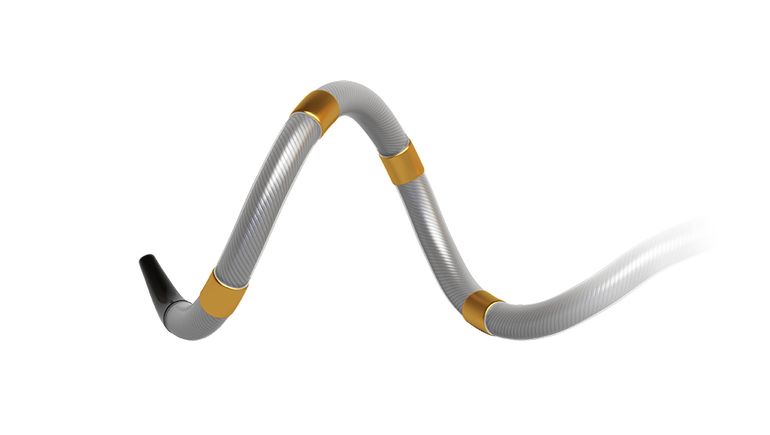Dive Brief:
- Medtronic received approval from the Food and Drug Administration for its Symplicity Spyral renal denervation device, the second device of its kind to be authorized by the agency.
- An FDA advisory panel in August found the risks outweighed the benefits of Medtronic’s blood-pressure treatment but voted in favor of its safety and efficacy.
- The decision follows approval of a competing device made by Recor Medical earlier this month. Medtronic said it plans to immediately begin commercialization.
Dive Insight:
Medtronic’s Symplicity Spyral device uses radiofrequency energy delivered through a catheter to destroy overactive nerves near the kidney to lower blood pressure. With the approval, the device will be available as an adjunctive treatment for patients where lifestyle modifications and anti-hypertensive medications did not adequately control their blood pressure.
“This landmark approval is the culmination of rigorous scientific study and clinical trials, including long-term, sham-controlled studies in the presence and absence of medication, and the largest real-world study,” David Kandzari, co-principal investigator of the SPYRAL clinical program and chief of the Piedmont Heart Institute, said in a statement by Medtronic.
The approval could open a “multi-billion dollar” market for Medtronic, RBC Capital Market analyst Shagun Singh wrote in a research note on Sunday. Singh added that Medtronic previously estimated the market opportunity at $500 million by 2026 and at from $2 billion to $3 billion by 2030.
The approval “is especially noteworthy as it comes following years of clinical evidence gathering on part of [Medtronic,] and a fairly split FDA Panel this year … on efficacy as well as risk/benefit even though the Panel voted unanimously in favor of safety,” Singh wrote.
Last year, Medtronic published results of a pivotal trial that missed its primary endpoint, failing to prove that the device reduced patients’ systolic blood pressure at home. However, the device demonstrated a statistically significant blood reduction when patients’ blood pressure was measured at the doctor’s office. Increased use of medications in the control group and the effects of the COVID-19 pandemic may have affected the results, Medtronic said.
In November, an advisory panel voted 6-7 against the device’s benefit-risk profile, raising questions about whether the FDA would approve the device. A competing device made by Otsuka-backed Recor Medical received a positive advisory vote. The FDA often follows its advisers’ recommendations, although it is not required.
Medtronic has not specified whether it has any post-market studies planned to address advisors’ questions on efficacy.
The company is currently in conversations with insurers and plans to seek Medicare’s temporary add-on payments and outpatient Transitional Pass-Through Payment designation for breakthrough devices, Singh wrote.
Medtronic will report its latest earnings results on Tuesday.

